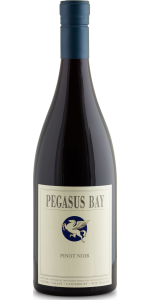
Description
Its colour is a deep ruby upon release. Dark toned and seductive, the nose unfurls with an alluring bouquet of boysenberry, black cherry, and cacao, underpinned with a savoury underlay, reminiscent of wood spice, roast game, truffle, leather, and a tickle of cinnamon. The palate is decadently ripe and supple bodied, with fine grained tannins and generous fruit weight that combine to beautifully harmonise the wine. A backbone of zippy acidity creates the perfect union, adding structure and length on the long, succulent close.
Awards
96 pts Wine Orbit
95 pts The Real Review
93 pts James Suckling
5 stars Michael Cooper’s Buyer’s Guide
Certifications
Alcohol
13.0%
Analytical data
dry
Vineyard
The vineyard is located within the Waipara Valley of North Canterbury, on free draining, north facing terraces carved out of New Zealand’s Southern Alps by an ice-age glacier. It benefits from being in the lee of the Teviotdale Range, giving maximum protection from the Pacific’s easterly breezes and thus creating a unique mesoclimate. The vines are over 30 years old, with a large proportion planted on their own roots. The soil is free draining and of low fertility, resulting in naturally reduced vine vigour. This produces low yields of optimally ripened, high quality, flavourful grapes, which fully express the qualities of this unique terroir. The vineyard has warm days, but the nights are amongst the coolest in the Waipara Valley, drawing out the ripening period of the grapes, while still retaining good natural acidity.
Winemaker
Mat Donaldson
Viticulture
The vines are over 30 years old, with a large proportion planted on their own roots.
Vinification
Traditional Burgundian winemaking methods were used to make this wine. We picked the various blocks at different stages, depending on their maturity, aiming for a range of red and dark fruit flavours. Approximately 40% the grapes were put at the bottom of the fermentation vats as whole bunches, with the balance being destemmed on top, retaining as many whole berries as possible. The vats were kept cool over the next few days to help extract the soft, silky tannins from the pinot noir skins. After approximately a week the must started to ferment naturally. During fermentation the skins of the grapes were gently plunged twice daily. When the fermentation finished, the grape remnants were left to steep in the wine for up to a week to help extract a different range of tannins that add structure and depth. The exact duration of this period was determined by daily tasting. Subsequently the wine was gently pressed off and put into oak barriques (40% new) from selected artisan Burgundian coopers. In the summer after harvest, when the weather warmed, the wine underwent a natural malo-lactic (secondary) fermentation. After maturing for 15mths in these barriques, the batches made from the many different plots and clones of pinot were carefully blended in varying portions to produce the most complex and balanced wine possible.
Maturation
15 months
